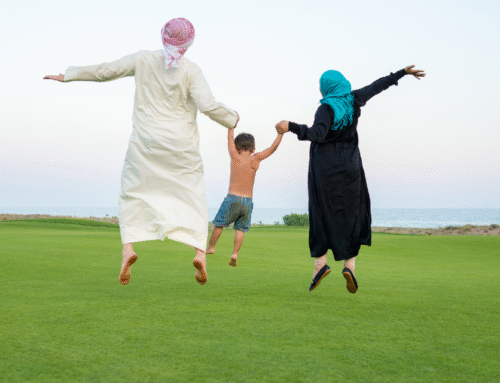“Slumdog Millionaire,” a captivating story brought to life on the big screen, casts a spotlight on a multitude of themes, one of which is the compelling notion of ‘Maktoob’ – the Arabic term denoting that which is already written in the tapestry of destiny or fate. Amidst the grand tapestry of events, the film chronicles the heart-wrenching odyssey of two lovers, tracing their arduous journey to reunite years after an unfortunate childhood separation.
Rooted in the overarching theme of ‘Maktoob,’ the film resonates with audiences who discern a sense of predestined unity between the star-crossed lovers. However, delving deeper into the narrative unveils a nuanced interplay between fate and effort. While it may seem that destiny has ordained their union, this perception inadvertently downplays the protagonist’s relentless pursuit and his beloved’s audacious leaps of faith to actualize their love story.
Predestination and Decree
The concept of fate encapsulates a predetermined trajectory of events, implying an orchestration beyond human intervention. It propels events forward with an air of inevitability, often invoking a sense of cosmic design and chance. Conversely, destiny heralds a more dynamic proposition, affording individuals the agency to mold their lives through conscious choices and actions. It suggests a journey where aspirations, choices, and untapped potential converge to create a unique life path.
These definitions, while encapsulating the general tenets of fate and destiny, harbor diverse interpretations owing to cultural, philosophical, and religious variances. Such nuances color the ways in which individuals relate to the concepts, breathing life into their beliefs and influencing their perspectives.
Divine Knowledge and Decree:
In Islamic theology, the concepts of fate and destiny – encompassed by the Arabic term ‘Qadar’ – are intrinsic to the belief system, embodying profound theological and philosophical implications. ‘Qadar’ harmonizes the coexistence of divine predestination and human free will. Muslims affirm that Allah, possessing omniscience, encompasses the past, present, and future, and nothing occurs beyond His knowledge. Simultaneously, while Allah’s decree encompasses all facets of existence, human free will remains integral. This duality emphasizes accountability, underscoring the importance of personal choices.
Islamic scholars have delved into the interplay between divine foreknowledge and human choice, yielding a spectrum of perspectives within the broader Islamic framework. This discourse underscores the intricate balance between divine sovereignty and human agency, reflecting a call to navigate life’s complexities while trusting in Allah’s plan.
Human Free Will
The dynamic interweaving of fate and free will raises profound questions. If certain events are preordained by a higher power, how can individuals exercise genuine free will in their decisions? This paradox has driven philosophical contemplation, evoking profound dialogue among scholars and thinkers.
Surah Al-Qamar, verse 49 of the Quran, serves as a poignant encapsulation of divine precision and human agency. The verse’s declaration – “Indeed, We have created all things in proportion and measure” – resonates as a testament to the masterful Creator’s wisdom, echoing through the exquisite complexity of the universe. Yet, this declaration unveils more than cosmic observation; it invites contemplation on the symbiotic relationship between God’s design and human initiative.
For instance, life and death are destined facets of existence, yet human actions can influence their timing. Delving deeper, health conditions and well-being adhere to predetermined measures, yet human choices can sway these outcomes, often determining the threshold between life and death. The same principle applies to love stories, where two individuals, through acts of affection and choices aligned with love, determine their shared destiny.
Reflection and Contemplation:
In essence, the precision underlying the universe is emblematic of divine sovereignty. Yet, it does not negate human agency; rather, it amplifies it. Human beings, graced with free will, possess the power to align their actions with divine measurements or deviate from them. It is through the exercise of this free will that the implications of divine proportion truly materialize, illustrating that destiny is a symphony harmonized by both cosmic orchestration and human choices.
As we traverse life’s intricate tapestry, the interplay of fate and free will serves as a reminder that our choices, our efforts, and our actions echo across the grand design. Through our conscious decisions, we become co-creators in the ever-evolving story of our lives. In “Slumdog Millionaire” and beyond, the interplay between destiny and free will remains a profound narrative, one in which individuals etch their unique mark on the fabric of existence.



انا مش ملاحق اقرا ايه ولا ايه
لكن keep going
Profoundly written ya Hani! Talks of destiny and fate always mesmerize and perplex me. Yet you find ways to capture them and convey them in a way I want to get back to my own path, grab all the gems on the way and slay all the dragons waiting for me.